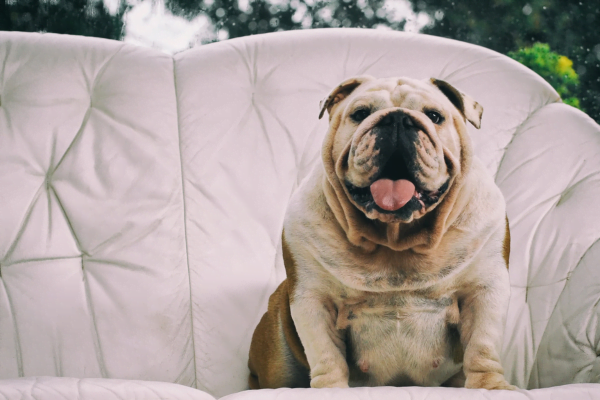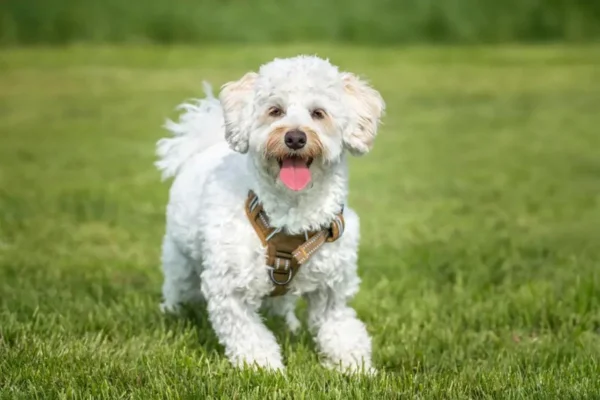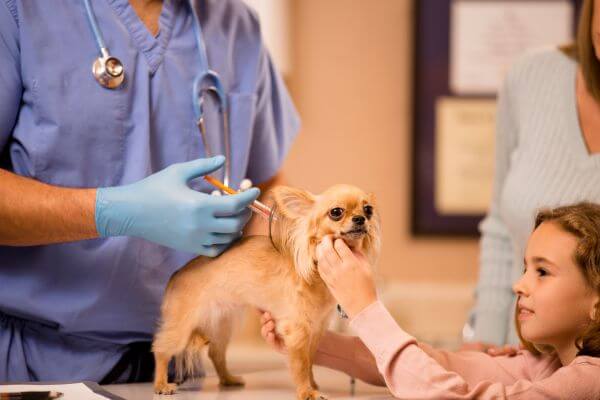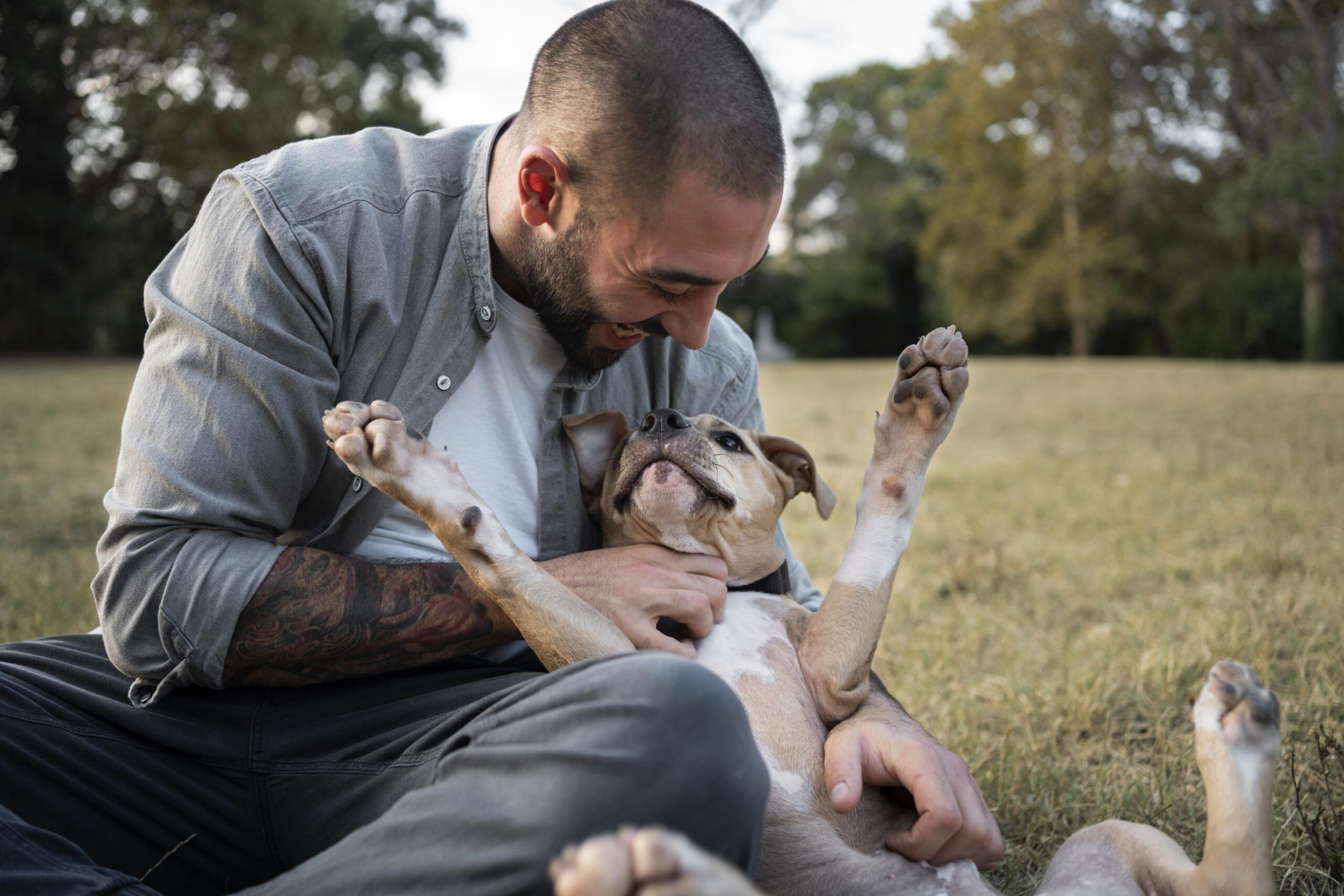Obesity in Dogs: A Complete Guide to Understanding and Managing It
If you're a dog lover, you certainly want the best for your furry companion. Obesity in dogs is a serious issue that affects not only your four-legged friend's appearance, but also their general health and quality of life. In this comprehensive guide, we'll explore obesity in dogs in depth, from its causes to effective management methods. Let's dive deep into the world of our canine friends and understand how we can keep them happy and healthy.
Obesity in Dogs: What is it and Why is it Important to Worry?
A obesity in dogs occurs when there is an excessive accumulation of body fat, negatively affecting the animal's health. This may seem like a minor concern, but obesity can lead to a number of serious health problems for dogs, including diabetes, heart disease, high blood pressure and joint problems.
It is important that owners understand the risks involved and take preventative measures to ensure that their dogs maintain a healthy weight.
Contents
Causes of Obesity in Dogs: More than Just Diet
Obesity in dogs is not only caused by an inadequate diet. There are several underlying causes that contribute to excessive weight gain in dogs:
Excessive and unbalanced nutrition
One of the main causes of obesity is excessive food consumption. Many owners tend to offer larger portions than necessary or give in to their dog's pleading for more food. In addition, offering food high in fat and empty calories can exacerbate the problem.
Lack of adequate exercise
Lack of exercise is another reason for canine obesity. Dogs need regular physical activity to maintain a healthy weight. Lack of exercise not only contributes to weight gain, but also affects the dog's general health.
Genetic and racial factors
Some dogs have a genetic predisposition to gain weight more easily than others. Breeds such as Labradors, Pugs and Beagles are more prone to obesity. It's important to understand your dog's breed and its specific characteristics when creating a diet and exercise plan.
Age and Lifestyle
Older dogs have a slower metabolism, which means they burn fewer calories. In addition, dogs that lead a sedentary lifestyle are more likely to gain weight.
Symptoms of Obesity in Dogs: Recognizing the Signs
Recognizing the symptoms of obesity in dogs is essential in order to intervene in time and avoid serious complications. Some common signs of obesity include:
- Difficulty moving around: If your dog is having difficulty moving, jumping or playing, it could be a sign of being overweight.
- Lack of energy: Obese dogs generally show less interest in play and physical activity.
- Difficulty breathing: Being overweight can put a strain on the respiratory and cardiovascular systems, leading to breathing difficulties.
- Depression: Just like humans, dogs can suffer from depression due to obesity, affecting their behavior and mood.
- Difficulty finding the ribs: When you stroke the dog's body, you should be able to feel the ribs. If you can't, it could be a sign of excess fat.
Managing Obesity in Dogs: Practical Tips
The good news is that obesity in dogs can be managed and reversed with the right approaches. Here are some practical tips to help your dog achieve a healthy weight:
Consult a veterinarian
Before starting any weight loss program, it is essential to consult a veterinarian. They can assess your dog's health, identify underlying problems and provide personalized guidance.
Establish a Proper Diet
Your vet can help you create a balanced diet plan adapted to your dog's needs. This may involve choosing high-quality food and determining appropriate portions.
Regular Exercise
Implement an exercise routine suited to your dog's breed and age. Play, walks and interactive activities are essential for burning calories and improving general health.
Avoid excessive snacking
Although treats are a way of showing affection, it's important to limit their quantity. Opt for healthy, low-calorie treats and reserve them for occasional rewards.
Regular monitoring
Keep a record of your dog's progress, including weight, measurements and behavioral changes. This will help you adjust the management plan as necessary.
FAQ's on Obesity in Dogs
What causes obesity in dogs?
Obesity in dogs is caused by a combination of factors, including overfeeding, lack of exercise, genetic predisposition and old age.
How can I tell if my dog is overweight?
You can determine whether your dog is overweight by palpating its ribs. If you can't feel the ribs, there is probably excess fat.
Which dog breeds are more prone to obesity?
Breeds such as Labradors, Pugs and Beagles are more prone to obesity due to genetic factors.
Can obesity in dogs be reversed?
Yes, with a proper diet plan and regular exercise, obesity in dogs can be reversed.
What are the health risks associated with obesity in dogs?
Obesity in dogs can lead to problems such as diabetes, heart disease, high blood pressure and breathing difficulties.
How can I help my dog lose weight safely?
Consult a vet for a personalized weight loss plan, establish a balanced diet and incorporate regular physical activity.
Conclusion
Obesity in dogs is a serious problem that requires attention and action on the part of owners. Understanding the causes, symptoms and management strategies is key to ensuring that your dog lives a healthy and happy life. Always remember that regular visits to the vet, a proper diet and exercise are the key to preventing and dealing with obesity in dogs. By adopting preventative measures, you'll be contributing to the overall well-being of your faithful four-legged friend.
Obesity in dogs: what causes it, care and how to prevent it (minutosaudavel.com.br)
Thanks for stopping by, check out our other work too
https://vettopbr.com/doenca-do-carrapato-um-guia-completo-sobre-sintomas/https://vettopbr.com/gatos







